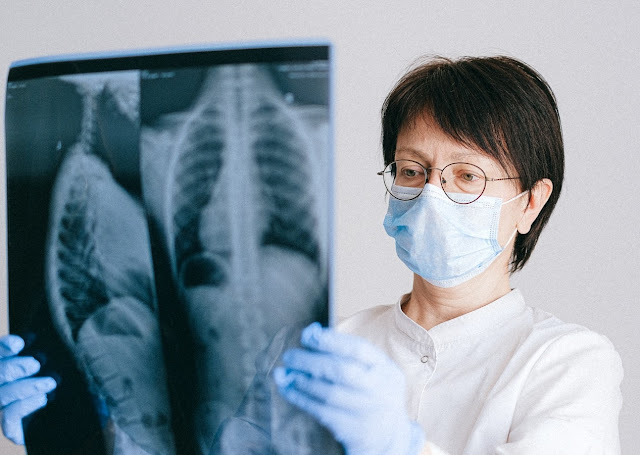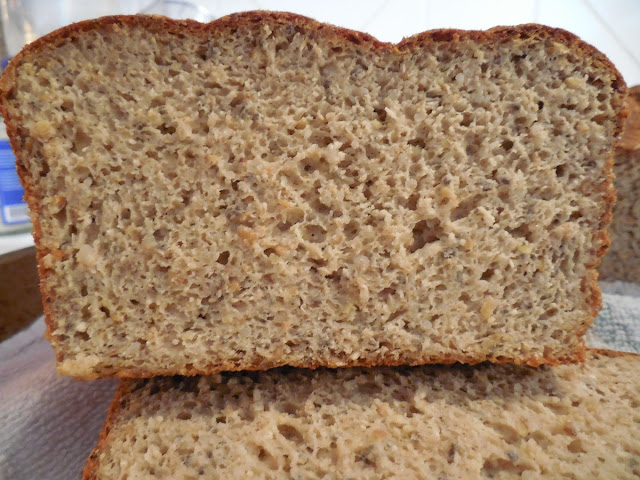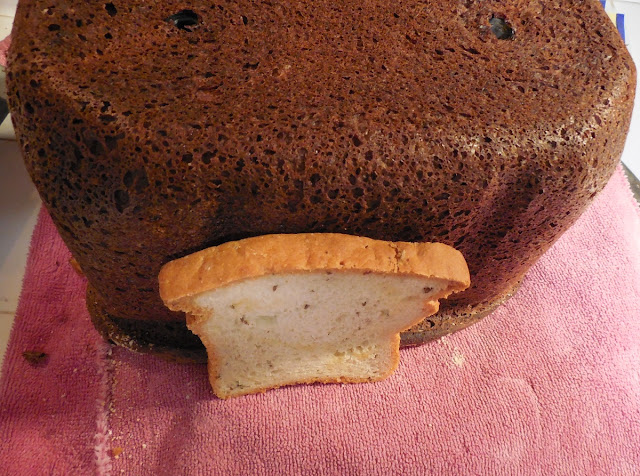Ketogenic Diet Part 2: The Gallbladder
It's hard to find good information about the gallbladder. The modern medicine view is that it's probably going to fail in middle age and should just be removed. So why care about it? If you're in need of a ketogenic diet, then it's better to have a gallbladder, but it's not necessary. I've said before I was "transitioning" to a keto diet. The usual way to do that is to fast for 24 or 36 hours, and then instantly switch to eating a keto diet. But I don't have my gallbladder, so I'm switching slowly, reducing my carb intake and increasing my fat intake by steps. It's harder to do that way, but I get better results.
One of the effects of undiagnosed Celiac disease is a leaky gut. Semidigested food bits and germs can pass through the gut barrier. I was telling doctors that I felt like I was having peritonitis, that the symptoms were there. But I am obese and when they felt my stomach for "hardening" I don't think they felt anything but blubber. There should've been an alternative way for them to test for it, but if there was, they never used it. I've experienced doctors who think my fatness is my problem more often than I care to list.
So the chronology of my gallbladder, to the best of my recollection, is this. I switched to keto around 2011 or 2012, and it worked well for two and a half years. But I didn't realize I had Celiac so whenever I had a slice of bread or something with carbs, it was always wheat. The wheat led to the keto becoming less and less helpful. But I wasn't sure what the culprit was yet. I stopped losing weight and keto never again worked for weight loss for me. So I got more severe in my diet. I did an 8 month stint at a calculated, VLCD diet. That's a "very low calorie diet." That finally worked. I lost 80 lbs! But I still was eating wheat.
Then the weight loss stopped. Not knowing what to do, and since VLCD's are by nature ketogenic, I went back to my keto diet after the last two months (of the 8 months) failed to produce any weight loss at all. And even trimming more calories out of my diet didn't work! So much for the laws of thermodynamics!
Within another two months I developed gallbladder pain and one day, without a lot of warning or even pain, I started vomiting. I don't have a good gag reflex, so I usually don't vomit. For me vomiting is a sure sign that something is severely wrong. My doctor sent me for a CT scan, and I was rushed to the hospital because my gallbladder was severely infected. Within hours I was told there was no hope of keeping my GB not even with antibiotics and it was gone.
Then everyone told me to lower my fat intake, etc. I did that for a while. A year later I had processed the events this way:
1. I encouraged my body to make more bile than normal (this has a clearing effect on the liver) and I was including foods with insoluble fiber in my keto diet so...
2. My liver had a chance to clear a lot of things because some of the bile was always getting lost via the fiber I was taking in. In case you're unaware fiber is important in a keto diet because it tends to attach to bile and remove it from the body. Otherwise your body recycles bile. That's ok, unless your liver needs to clear things.
3. Bile, which is produced by the liver and usually stored in the gallbladder, is used to break down fats. Some of the bile you produce is reabsorbed in the ileus (the last part of the small intestine before it attaches to the colon). The ileus is also where the appendix is. I've always had pain in that area and the keto diet finally healed that area of my gut.
4. I had been on way too many meds for the years before I became ketogenic and my liver needed to clear some of the backlog. In 2006 I was hospitalized and I acquired more than 10 daily drugs to take! I had spent the time between 2008 and 2012 removing unnecessary drugs and paring them down to the fewest I could take.
5. So when keto started, I got a lovely grace period where I had no migraines, I felt great and I even started to lose weight. But when I stopped and switched to VLCD, my liver had fewer ways to dump the trash it was cleaning up.
6. My gallbladder became congested and stones formed (even with my untrained eyes, there were at least 15 stones I could see in the image!
7. The stones didn't block anything, but they were a great food source for free floating germs from my leaky gut. Another theory is that my liver is being affected by the ubiquitous viruses that my body seems unable to keep down, and through a coincidence of virus and lack of immune response to germs, my GB became infected.
8. In ME/CFS, we assume we are affected by a virus that hasn't been found. Or for some reason the body isn't holding in check ubiquitous viruses (like herpes or cytomegalo -viruses). I know those two viruses are being actively fought by my body and have been for a couple of years since I started having them checked. My body is losing that war. And I take antivirals to keep my body on the winning side. They can affect digestive organs, and for me, it seems like they are.
9. So the infected GB had to go, there was no help for it. Later, my gastroenterologist said it was normal for people who had lost weight to lose their GB right after they lose weight. I was like, "Gee I wish someone had said something, and given me some tools to prevent it." But the fact is, there are no tools. Modern medicine treats the gallbladder as disposable and unworthy of research or attention.
After surrgery, healing, and leaving it alone for several months after healing, I cautiously tried eating more fat. And I had some problems. But I bought an ox bile supplement and noticed that if I took that for a short time, it restarted the bile recycling system and helped my liver get back to a high fat diet without problems. So, the solution is: without a gallbladder, you can still "go keto" except you might have to kickstart the bile system with an external source of bile like Ox Bile supplements.
After GB loss it's not impossible to be ketogenic in your diet, but it's a good idea to transition to keto, and never actually fast too long. Since the liver has no other means of clearing some endogenous toxins other than the bile or bloodstream, stopping the flow of bile isn't a great idea. At this point, I'm focusing on intermittent fasting and lowering carb intake. My body has enough fat to last me a while and I want my body to use that for fuel.
However, encouraging your body to use stored fat for fuel is a very complex process. If it was easy, there would be no obese people. Obesity, as opposed to simple overweight is a totally different animal when it comes to regaining health. I've had to say this to doctors to get them to drop their patient blaming preconceptions: "What are the odds of an obese person actually losing weight successfully and keeping it off forever?" then "I have to lose 150 lbs just to get to the Overweight category." and finally "Can you direct me to a method that always works?"
Sometimes doctors and health professionals need a reality check to bring them in line with the reality I live in. In my reality, feeling better is a big win. Less neuralgia is a big win. Few to no migraines is a gigantic win. I'd still love to lose all this weight. But look what happened when I used a VLCD, sure it was effective but I lost a digestive organ! That's not healthy, even if medicine ignores it.
The moral of this story: treat your gallbladder with caution because medical professionals don't care about it and you don't want to be faced with losing it.
More information and details for how to follow the Keto diet without a gallbladder can be found here: https://www.ruled.me/how-to-follow-keto-without-a-gallbladder/
This blog and associated commercial websites has been around for 11 years and posts something new every day. It's Mark's Daily Apple, and Mark is a former endurance athlete.
Between these two sites, you will discover many more, but always be aware that the Atkins Diet is orthodox medicine's favorite hatred totem. So be very cautious about what you believe. These two sites I've found to be far better than my greatest expectations, and they have continued that way.
Part 2: https://www.nixgluten.com/2018/10/ketogenic-diet-part-2-gallbladder.html
Part 3: https://www.nixgluten.com/2018/10/ketogenic-diet-part-3-reality-check.html
Transitioning example, 1 day menu: https://www.nixgluten.com/2019/02/my-keto-day.html
One of the effects of undiagnosed Celiac disease is a leaky gut. Semidigested food bits and germs can pass through the gut barrier. I was telling doctors that I felt like I was having peritonitis, that the symptoms were there. But I am obese and when they felt my stomach for "hardening" I don't think they felt anything but blubber. There should've been an alternative way for them to test for it, but if there was, they never used it. I've experienced doctors who think my fatness is my problem more often than I care to list.
Obesity is definitely one of the problems I hope to solve someday. I'm not claiming it isn't a problem. But if you've ever dared read about the body-positive movement, you've learned that seeking thinness, over and above health is destructive. In a similar way, having a doctor dismiss symptoms because you're fat isn't helping anyone, and a case could be made for denial of health access, or delay of medical care. Certainly many body-positive advocates have written about the ways in which health care practitioners might change for the better. Obesity isn't even a word used by advocates of the movement, but in my case, I accept the term because I know my body is malfunctioning. However, that doesn't mean I'm going to put up with it if a doctor ignores my other health issues because of a prejudice.
So the chronology of my gallbladder, to the best of my recollection, is this. I switched to keto around 2011 or 2012, and it worked well for two and a half years. But I didn't realize I had Celiac so whenever I had a slice of bread or something with carbs, it was always wheat. The wheat led to the keto becoming less and less helpful. But I wasn't sure what the culprit was yet. I stopped losing weight and keto never again worked for weight loss for me. So I got more severe in my diet. I did an 8 month stint at a calculated, VLCD diet. That's a "very low calorie diet." That finally worked. I lost 80 lbs! But I still was eating wheat.
Then the weight loss stopped. Not knowing what to do, and since VLCD's are by nature ketogenic, I went back to my keto diet after the last two months (of the 8 months) failed to produce any weight loss at all. And even trimming more calories out of my diet didn't work! So much for the laws of thermodynamics!
Within another two months I developed gallbladder pain and one day, without a lot of warning or even pain, I started vomiting. I don't have a good gag reflex, so I usually don't vomit. For me vomiting is a sure sign that something is severely wrong. My doctor sent me for a CT scan, and I was rushed to the hospital because my gallbladder was severely infected. Within hours I was told there was no hope of keeping my GB not even with antibiotics and it was gone.
Then everyone told me to lower my fat intake, etc. I did that for a while. A year later I had processed the events this way:
1. I encouraged my body to make more bile than normal (this has a clearing effect on the liver) and I was including foods with insoluble fiber in my keto diet so...
2. My liver had a chance to clear a lot of things because some of the bile was always getting lost via the fiber I was taking in. In case you're unaware fiber is important in a keto diet because it tends to attach to bile and remove it from the body. Otherwise your body recycles bile. That's ok, unless your liver needs to clear things.
3. Bile, which is produced by the liver and usually stored in the gallbladder, is used to break down fats. Some of the bile you produce is reabsorbed in the ileus (the last part of the small intestine before it attaches to the colon). The ileus is also where the appendix is. I've always had pain in that area and the keto diet finally healed that area of my gut.
4. I had been on way too many meds for the years before I became ketogenic and my liver needed to clear some of the backlog. In 2006 I was hospitalized and I acquired more than 10 daily drugs to take! I had spent the time between 2008 and 2012 removing unnecessary drugs and paring them down to the fewest I could take.
5. So when keto started, I got a lovely grace period where I had no migraines, I felt great and I even started to lose weight. But when I stopped and switched to VLCD, my liver had fewer ways to dump the trash it was cleaning up.
6. My gallbladder became congested and stones formed (even with my untrained eyes, there were at least 15 stones I could see in the image!
7. The stones didn't block anything, but they were a great food source for free floating germs from my leaky gut. Another theory is that my liver is being affected by the ubiquitous viruses that my body seems unable to keep down, and through a coincidence of virus and lack of immune response to germs, my GB became infected.
8. In ME/CFS, we assume we are affected by a virus that hasn't been found. Or for some reason the body isn't holding in check ubiquitous viruses (like herpes or cytomegalo -viruses). I know those two viruses are being actively fought by my body and have been for a couple of years since I started having them checked. My body is losing that war. And I take antivirals to keep my body on the winning side. They can affect digestive organs, and for me, it seems like they are.
9. So the infected GB had to go, there was no help for it. Later, my gastroenterologist said it was normal for people who had lost weight to lose their GB right after they lose weight. I was like, "Gee I wish someone had said something, and given me some tools to prevent it." But the fact is, there are no tools. Modern medicine treats the gallbladder as disposable and unworthy of research or attention.
After surrgery, healing, and leaving it alone for several months after healing, I cautiously tried eating more fat. And I had some problems. But I bought an ox bile supplement and noticed that if I took that for a short time, it restarted the bile recycling system and helped my liver get back to a high fat diet without problems. So, the solution is: without a gallbladder, you can still "go keto" except you might have to kickstart the bile system with an external source of bile like Ox Bile supplements.
After GB loss it's not impossible to be ketogenic in your diet, but it's a good idea to transition to keto, and never actually fast too long. Since the liver has no other means of clearing some endogenous toxins other than the bile or bloodstream, stopping the flow of bile isn't a great idea. At this point, I'm focusing on intermittent fasting and lowering carb intake. My body has enough fat to last me a while and I want my body to use that for fuel.
However, encouraging your body to use stored fat for fuel is a very complex process. If it was easy, there would be no obese people. Obesity, as opposed to simple overweight is a totally different animal when it comes to regaining health. I've had to say this to doctors to get them to drop their patient blaming preconceptions: "What are the odds of an obese person actually losing weight successfully and keeping it off forever?" then "I have to lose 150 lbs just to get to the Overweight category." and finally "Can you direct me to a method that always works?"
Sometimes doctors and health professionals need a reality check to bring them in line with the reality I live in. In my reality, feeling better is a big win. Less neuralgia is a big win. Few to no migraines is a gigantic win. I'd still love to lose all this weight. But look what happened when I used a VLCD, sure it was effective but I lost a digestive organ! That's not healthy, even if medicine ignores it.
The moral of this story: treat your gallbladder with caution because medical professionals don't care about it and you don't want to be faced with losing it.
More information and details for how to follow the Keto diet without a gallbladder can be found here: https://www.ruled.me/how-to-follow-keto-without-a-gallbladder/
Epilogue: OK so where do I go for good information, recipes, etc?
Here are two websites that are must-see if you're considering the Ketogenic diet
Be careful when you google for this one, there are a lot of copycat sites with similar names, This is the original Ketogenic Diet Resource. Most of the ones with similar names are scammy.
This blog and associated commercial websites has been around for 11 years and posts something new every day. It's Mark's Daily Apple, and Mark is a former endurance athlete.
Between these two sites, you will discover many more, but always be aware that the Atkins Diet is orthodox medicine's favorite hatred totem. So be very cautious about what you believe. These two sites I've found to be far better than my greatest expectations, and they have continued that way.
Other Articles in This Series
Part 1: https://www.nixgluten.com/2018/10/ketogenic-diet-part-1-versus-dash-diet.htmlPart 2: https://www.nixgluten.com/2018/10/ketogenic-diet-part-2-gallbladder.html
Part 3: https://www.nixgluten.com/2018/10/ketogenic-diet-part-3-reality-check.html
Transitioning example, 1 day menu: https://www.nixgluten.com/2019/02/my-keto-day.html





